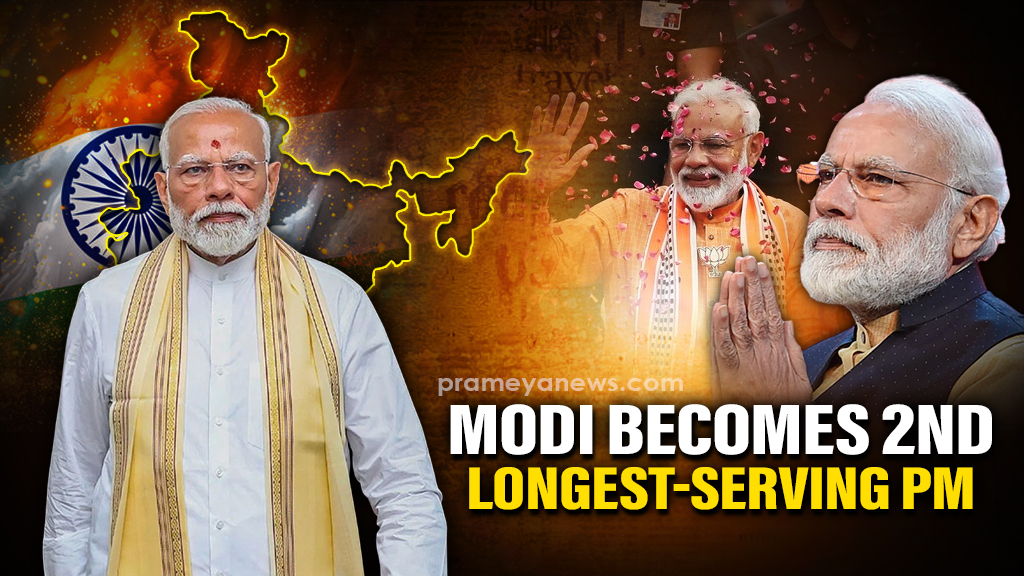

New Delhi, July 25: Prime Minister Narendra Modi has officially become the second-longest-serving Prime Minister in India’s history, marking 4,078 consecutive days in office as of Friday. With this milestone, he surpasses the record set by former Prime Minister Indira Gandhi, who held office for 4,077 uninterrupted days between January 24, 1966, and March 24, 1977.
This achievement solidifies Modi’s position as one of India’s most enduring political leaders, second only to the country’s first Prime Minister, Jawaharlal Nehru, in terms of continuous tenure.
PM Modi's political journey has been marked by several historic distinctions. He is the first and only Prime Minister born after India’s Independence, the longest-serving non-Congress Prime Minister, and the longest-serving Prime Minister from a non-Hindi-speaking state. Furthermore, Modi stands as the only non-Congress leader to complete two full terms and secure re-election with a clear majority—twice—in the Lok Sabha.
In another significant milestone, he is also the first sitting Prime Minister since Indira Gandhi in 1971 to return to power with a full majority. His political career reflects not only longevity but repeated electoral success. He is the only Indian Prime Minister, apart from Nehru, to lead his party to victory in three consecutive Lok Sabha elections—2014, 2019, and 2024.
Beyond national politics, Modi has achieved six consecutive electoral victories as the leader of a political party: three as Chief Minister of Gujarat (2002, 2007, and 2012), followed by three general elections. This cements his near 24-year-long run as the head of a democratically elected government, either at the state or national level.
Narendra Modi’s rise from humble beginnings in Vadnagar, Gujarat, where he helped his father sell tea at a railway station, to becoming a global statesman, is often cited as a testament to his perseverance and political acumen. His early association with the Rashtriya Swayamsevak Sangh (RSS) and later the Bharatiya Janata Party (BJP) laid the foundation for his meteoric rise. As Gujarat’s Chief Minister for over a decade, he built a reputation for administrative efficiency, which later propelled him to national leadership.
Since taking office in 2014, Modi has reshaped India’s political landscape and elevated the country’s presence on the global stage. With strong communication skills, grassroots appeal, and a firm administrative hand, he has become a defining figure in 21st-century Indian politics.
As he enters his 4,079th day in office, Modi’s political journey continues to unfold, with history already recognising him as one of India’s most impactful and enduring leaders.